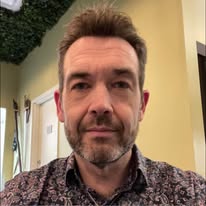Diets: The Magic is in You
- Justin Pawley

- Mar 13, 2025
- 3 min read
Since sharing my weight loss journey, many have asked how I did it. The truth? There's no secret formula, it's all about understanding how your body works.
For a long time, I thought I had a slow metabolism. Turns out, it's actually fast. This means that if I overeat, I gain weight quickly, but when I cut calories, I shed it just as fast. Everyone’s body is unique, and figuring out what works for you is key.
Discover What Works for You
Managing weight is personal. Some people cut calories, others cut sugar, fats, or carbs. The important thing is to experiment and observe how your body responds. There's no one-size-fits-all solution.
The first 2-3 weeks can be the toughest. Your body needs time to adjust to eating less, and hunger pangs are normal. But don't give up, your body will adapt, and your stomach will actually shrink, meaning you'll feel fuller with less food. The key is to stay consistent and push through those initial cravings. It does get easier, I promise.
Diet Foods and Supplements: Think Long-Term
If you're thinking about diet shakes or bars, ask yourself: "How will I manage when I'm no longer using these supplements?" Personally, I preferred learning how to manage "real" food from the start. That way, there was less risk of regaining weight when I stopped eating supplements.
Also, consider the impact of artificial sweeteners like Aspartame, Stevia, and Saccharin. There’s a lot of debate about their health effects, but I noticed something else: they are addictive. During my weight loss, I drank a lot of Diet Coke. It felt like a cheat because it was low-calorie, but stopping was harder than quitting smoking! I even switched to caffeine-free versions, but the cravings stayed, likely due to the sweeteners.
Also remember that when you consume something sweet, your body expects a sugar rush. If it doesn’t arrive (because it’s artificially sweetened), your body compensates by making you feel hungry. This is something to be aware of.
Portion Sizes Matter
Most of us underestimate portion sizes. Investing in a good kitchen scale changed the game for me. I’d place my plate on the scale, zero it, add each food item one by one, and zero it each time to get an accurate reading. It’s the best way to track calories accurately.
And watch out for sneaky packaging! Some items show calories per serving, but the package actually holds two servings. Crisps (chips) in the UK are notorious for this. A top tip? Multi-pack bags are usually smaller than individual ones sold in shops and can be lower in calories, just avoid eating the whole pack in one go!
Becoming a Supermarket Detective
Losing weight turned me into a bit of a supermarket researcher. I started checking nutritional info on everything and learning how companies make products look healthier than they really are. It became a bit of a game and made shopping more mindful and engaging.
I called it my “Supermarket Diet”, choosing foods that were easy to track calorie wise. Even ready meals can be surprisingly low in calories if you check the labels carefully. I always opted for smaller, single portions, even if they cost a little more, just to avoid having to weigh out portions.
Tracking Progress
Calorie tracking was a huge part of my journey. I used the MyFitnessPal app, though I’ve noticed some features like barcode scanning are now behind a paywall. A great alternative is FitBee Calorie & Macro Counter, it's simple, effective, and largely advert-free.
(Just to clarify, I’m not affiliated with any apps, I just found them genuinely helpful!) They made tracking easy: scan a barcode, and the product’s nutritional info would pop up. If something wasn’t listed, I could add it for future use. Tracking my intake helped me stay accountable, set goals, and see real progress.
The Magic is in You
Ultimately, weight loss is about changing habits and building a healthier relationship with food. It’s about persistence, overcoming challenges, and reclaiming your power. Just like any life journey, it’s about creating lasting, positive change one step at a time.















🥰🥰🥰